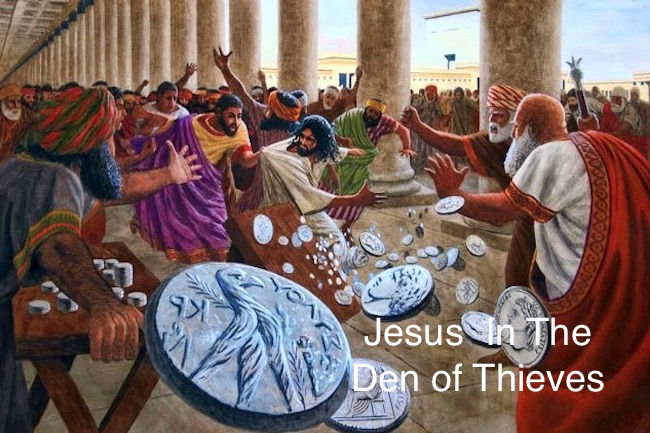Should We Emulate the Table Flipping Jesus? by Michael L. Brown for Ask Dr Brown
In response to a recent article I wrote on how to love our political and ideological enemies, a reader responded, “We are past all of this to the table flipping, ‘brood of vipers’ phase now. This hippie Jesus everyone wants to portray is a blasphemy.”
In other words, there was a time when a pacifistic, hippie-like Jesus could teach such things. But as His ministry continued and the opposition got worse, He adopted a new strategy, denouncing His enemies as a “brood of vipers” and flipping the tables of the corrupt money changers.
To be sure, this negative comment was overshadowed by the flood of comments saying, “Amen!”
Still, we should ask: Is there any truth to this line of reasoning?
Not in the least.
Instead, it betrays a fundamental misunderstanding of the character of our Lord along with a fundamental misunderstanding of our calling in Him.
Let me break this down point by point.
First, before Jesus ever spoke the words “love your enemies” in the Sermon on the Mount, John the Baptizer had already denounced the religious hypocrites, calling them “a brood of vipers” and threatening them with hell fire. (See Matthew 3:7-12.) It’s not as if they suddenly became bad and Jesus now had to adjust His teaching.
In fact, throughout His ministry, Jesus called out the religious hypocrites. So rebuking them was nothing new.
Second, in the Sermon on the Mount itself, before Jesus called us to love our enemies, He told us that we would be hated and reviled and persecuted for His name’s sake, likening us to the prophets of old (Matthew 5:10-12). Yet it was these very people, those who would hate and persecute us, that He called us to pray for and to love.
Third, the very teaching that Jesus rejected, namely, that we should love our neighbors but hate our enemies, was grounded in a very real Jewish world in which the “enemies” were very real, even deadly threats.
Those enemies ranged from brutal Roman authorities to treacherous businessmen and from deceptive false teachers to cutthroat thieves.
Jesus commanded His disciples to love them, not hate them.
To be clear, as I stated in this same article, Jesus “is not saying that we should stop opposing destructive ideologies. He is not calling for moral or cultural or political apathy. He is not requiring us to soften our convictions or lower our standards.




